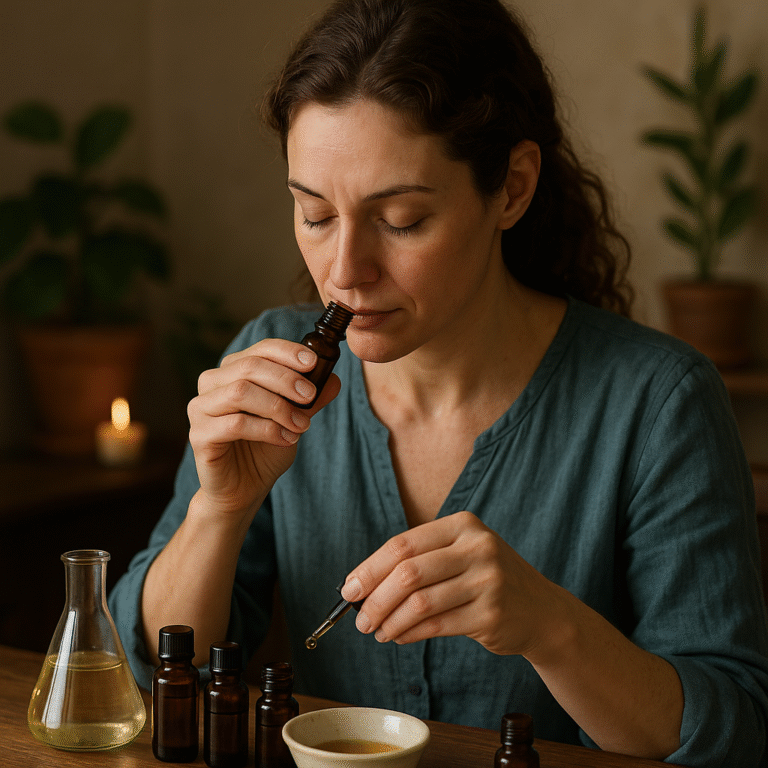
A CORE TEACHING OF THE HARMONIC OILS TEACHING COLLECTIVE
Blending essential oils is a refined art and a quiet science—a form of living intelligence that honors the wisdom of nature and the soul of the plant. In our approach, a blend is more than its chemistry or its scent. It becomes a coherent formula—therapeutic, sensual, and luminous—designed to resonate with the human system on every level: physical, emotional, energetic, and even archetypal.
Essential oils function in synergy. Their molecules may act biochemically, but their greater power lies in how they amplify and refine one another’s effect. A true blend is never random—it is a harmonic composition that supports coherence across the body, mind, and energy field.
“A well-formulated blend creates a field of resonance that speaks to the intelligence of the human being—not just the biology.”
We blend with discipline, but also with listening. Formulation is both sensory and subtle: it demands knowledge of the oils and receptivity to their voice. Each oil has a tone, a function, and a frequency. The practitioner learns these through layered practice—observing behavior in blends, listening to the body’s feedback, and adjusting with care.
Trust the nose. Trust the body. Trust the blend as it reveals itself.
We never blend for effect alone—we blend for intention. Whether the purpose is to restore nervous balance, support clear breath, center the heart, or assist in grief integration, the formula must be coherent in structure and aligned with its intended use: diffuser, topical, ritual, or daily care.
A blend without a clear purpose is just a scent. A blend with aligned intention becomes medicine.
We work with both minimal and maximal approaches. A therapeutic trio may suffice for acute support. But for deeper or layered effects, complex formulas—built from 10 or more oils—create multidimensional resonance. What matters is the architecture of the blend: does every oil serve a distinct and meaningful role?
Think like a composer: whether a duet or a full symphony, each voice must belong.
We balance blends through both aromatic structure and therapeutic logic.
Top Notes (citrus, some herbs): quick, bright, moving
Middle Notes (flowers, spices): stabilizing, connective
Base Notes (roots, woods, resins): grounding, anchoring
These elements must work not only on the nose, but in the nervous system and energetic body.
We do not believe in universal blends. Every person brings a unique terrain—physical constitution, emotional state, energetic needs. A practitioner must match the formula to the field: selecting oils and dilutions that truly support, rather than overwhelm.
Healing begins with attunement. No two nervous systems respond the same.
Before beginning, pause. Attune. Your inner state imprints the blend. We recommend setting a clear intention—whether whispered prayer, breath alignment, or simply holding the oils with presence. This moment of ritual dignifies the work and activates the field.
A blend begins before the first drop falls.
Blend with intention and clarity of purpose.
Combine compatible oils with synergistic effects.
Use as many oils as needed to create true resonance.
Be guided by energetic harmony, intention, and layered synergy.
Include a balance of top, middle, and base notes.
Consider the individual’s needs and sensitivities.
Always test the blend on the skin (diluted) before full use.
Use carrier oils (like jojoba or sweet almond) to dilute and deliver the blend safely.